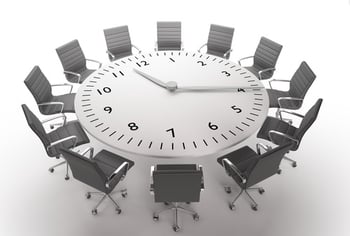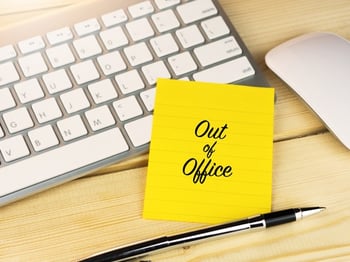
6 min read
The digital age we live in gives us a multitude of tools at our fingertips that can help to make us happier at work. I’d like to say I’m the expert in all of them but I’m not, and I can’t take the credit for the awesome advice and help shared in this post either. It’s not all from me, it’s actually all my favorite bits of advice I’ve heard bouncing around the office.
Whilst we all share our unified mission: “Let’s make the world a better place to work,” we know only too well that with nine different offices, 375+ different personalities, many different working habits and a variety of time zones, it can be hard to truly “Think Global” while we “Work Hard.”
It’s really great advice from people that know just how hard your job can be.
I’m sharing it with you, because I believe if we all committed to adopting all, or maybe even just a few, of the promises below we could be more effective as a team and achieve amazing things together, while making our world a better place to work.
Let’s begin with one I’m truly grateful for:
Always communicate with an RGer with a respect for their time and workload, and above all, have empathy
I’m someone who uses our flexible working a lot to balance family commitments with a busy role at RG. It makes things a lot easier when people understand that there are often things going on both in and outside of work in someone’s life. Always take that into consideration when communicating with someone.

Take the time to know your audience
I’ll hold my hands up on this one because I failed at it and must get better but I guess that’s what comes with being human. I recently arranged a weekly Monday meeting with colleagues in Australia. I didn’t check the timezones beforehand and ended up choosing a time when they would be sitting down for dinner with their families.
I’d recommend anyone who works in a global company to employ time zone tools to be sure they are communicating times effectively and not coming across as inconsiderate like me. If you are wanting someone to give up their time to help you, give them possible meeting times in their own time zone.
For a great start to any global collaboration download Time Buddy and use it. Be aware of the time zone they’re in, which communication channel they prefer and will be most effective, and understand that not everyone approaches conversations the same way with the same tone.
Download our eBook to learn more ways to connect your workforce with global employee engagement »

Have good meeting etiquette
When other people are involved, for both projects and meetings. Treat your colleagues as you would your best customer.
This first tip will only take you two minutes, but will get you a much better response to your event invitations. When you are planning your meeting include the objective of the meeting, the agenda and what you want to achieve from the meeting in the description. Surprises are good, but not when it comes to having a productive meeting, tell your guests what to expect and they will come prepared.
Next up, turn up on time. Seems obvious, but so many people forget to. Google Calendar, which is my favorite planner sends you a reminder ten minutes before the meeting starts so you can get yourself ready and waiting for your guests to arrive. No one likes to be the first to a party, and no one likes waiting in an empty meeting room (or virtual meeting room) either. Be the hostess with the mostess and be ready for your guests to arrive.
If you have to cancel, tell the other person why. Make sure that you rearrange the meeting using Assistant.to. It’s an app that takes all the trouble out of arranging meetings.
And lastly, include ALL the right people so that no one is left out or feels like their time is wasted. There is nothing worse than having not really given this some thought, thinking your work is final and then someone popping up and saying that your whole project is wrong and you’ll need to start again, trust me on this one. It happened to me and next time round I’ll be sure to time to figure out the appropriate departments and people to include instead of autopilot-ing and going to who you know.

And while managing projects across a global team
Always respond. It’s common courtesy and by managing your colleagues expectations you’re bound to get better results all round. Let’s agree that when someone contacts you, get back to them. For hangouts and emails, respond within one day, even if only to say that you are busy and need to get back to it, be exact and give estimated timelines. If you then cannot meet this, let them know. Instant messaging is such an incredible tool for global communication and at RG we love it.
If you’re out of the office and unable to respond, get your apps to do it for you. Change your "away message" with dates that you'll be out, set your out of office (with another point of contact) and add it into your calendar. This will prevent any delay on projects and deadlines as people won’t waste time waiting on you.
Alongside managing expectations be sure to manage timelines as well. Own It is one of our core values at RG, one of my favorites, and a great tool to teach you all about it is Paul Ardens “It’s Not How Good You Are, it’s how good you want to be.” Working globally you need to take responsibility for moving things forward, not being in the same location it can be easy for people to get distracted because you are not physically there to keep them on track.
So Own It and remember this quote, my favorite quote from Paul Arden’s book:
It's all my fault. Blame no-one, but yourself, if you have touched something accept total responsibility for that piece of work. If you accept responsibility you are in the position to do something about it. If you are involved don't blame others.
The last one I’m going to share happens rarely, but it’s something you will pleasantly surprise people with. Try asking someone when they can deliver instead of simply stating a deadline. It can make the difference between a happy collaborator and an unhappy one. I think we all know who we’d rather work with.
What tips do you have to keep a global workforce happy? I’d love to hear them!

 Catrin Lewis
Catrin Lewis



